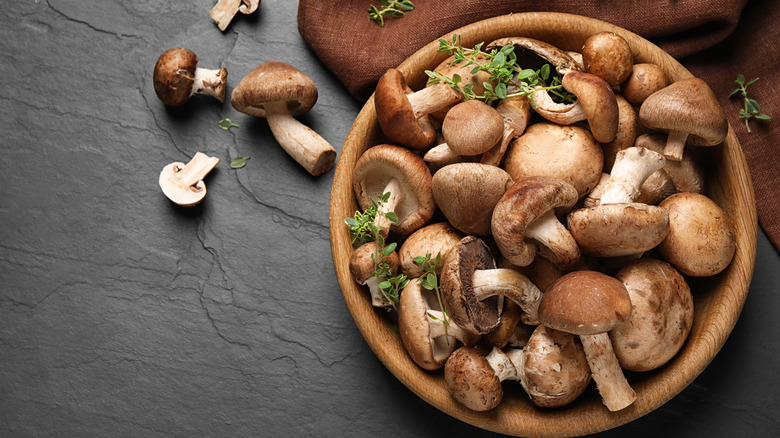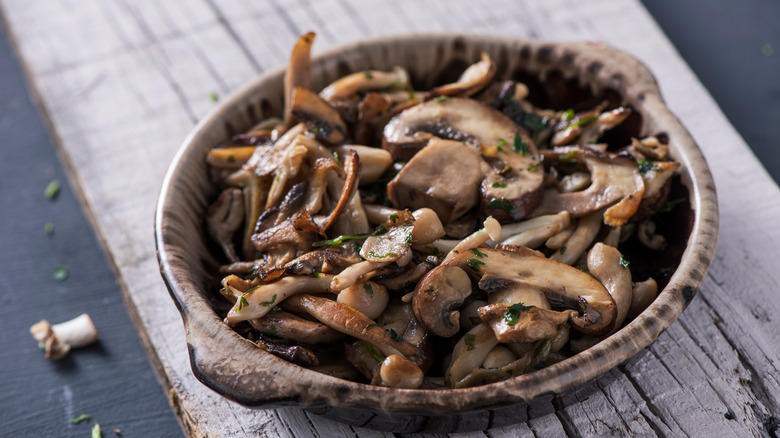Raw Versus Cooked Mushrooms: Which One Is Better For You?
Mushrooms are an incredibly versatile vegetable, offering a plethora of varietals, flavor profiles and textures. In many health circles, mushrooms aren't just considered a superfood, but a medicinal food. So aside from trying to simply eat more mushrooms, should we also consider how our preparation methods impact the nutritional benefits? Doctors and scientists suggest that cooking absolutely can impact nutrition. Some health experts suggest that mushrooms contain natural carcinogens. In order to break down much of the toxic content of mushrooms, one should use high-temperature cooking methods like sauteing, broiling, or grilling. Thus, mushrooms should generally not be eaten raw, via Andrew Weil, M.D. Another health group further delineated that plain white mushrooms in particular contain agaritine, a carcinogenic compound, that can be reduced through the cooking process. They recommended that when it comes to agaritine in particular, the best way to reduce it is through frying, microwaving, or boiling. However, it's important to note that agaritine isn't completely destroyed through the cooking process. via NutritionFacts.org. Dry baking at about 400 degrees Fahrenheit only reduces agaritine levels by about a quarter. Boiling for about 5 minutes removes a little over half of the toxins; 90% are killed after an hour. Microwaving seems to be the most efficient form, killing 65% in 30 seconds.
Boosting nutrition via cooking
Cooking to reduce toxins isn't the only benefit found in the cooking process. In fact, cooking wasn't the only method that affected nutritional and phytochemical composition. One study sought to investigate the effects of boiling, frying, microwaving, air drying, and freezing. Interestingly, drying was found to increase phenolics, proteins, and carbohydrates, and decrease lipids. On the other hand, freezing decreased lipids and had little effect on carbohydrates, phenolics, and proteins, via Food Science and Nutrition. Thus, of the two preservation methods, drying was far superior to freezing. In the same study, microwaving was found to increase the protein and carbohydrate content, and decrease phenolics and lipids. Boiling resulted in a loss of proteins, lipids, and phenolics, and increase of carbohydrates. Frying, however, increased carbohydrates, proteins, and lipids, and decreased phenolics. Results indicated that boiling resulted in the most nutritional loss and phytochemical components, and therefore was found to be the least desirable cooking method. Frying, on the other hand, retained the most nutrients and thus was deemed to be the most desirable cooking method.


